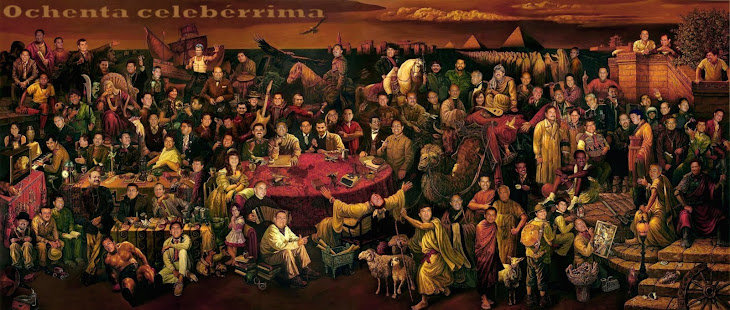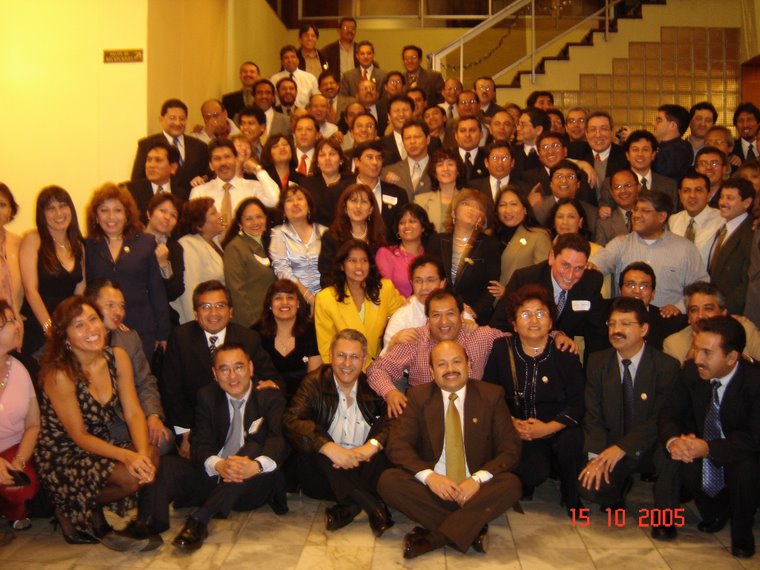JERGA ... DE JUERGA
Spanish is already a rich language, but to really enjoy it in Peru, you will need to learn some of our most common expressions and heavily used slang.
One of the best places to learn slang (called “jerga”) is at a party (called a “juerga”). The jerga flies around fast at a juerga. You generally feel less embarrassed at a party when speaking a new language — and it’s a fact that pisco helps everyone become more fluent in Spanish.
So, if you feel like being the star of the party, here are 25 must-learn Peruvian terms to study
1 Al fondo hay sitio
“There’s room in back.” An important expression in Lima’s bus culture. When getting on a packed bus, the money collector will exhort passengers to push through and find a miniscule space in back.
Sube al bus, ¡al fondo hay sitio!
2 Al toque
“In a second; in a heartbeat.” Means you will do something very fast.
Te voy a pasar los datos al toque. |
|
3 Aquisito nomás
“Really close by.” Often used when bargaining on buses or in taxis to emphasize the distance is in fact very close.
“¿A dónde vas?” “Aquisito nomás.” |
|
4 Atracar
To accept a proposal; to going along with a request.
Yo atraco en ir a la playa |
|
5 Caleta
“Discreet, kept on the down-low.” Often used when one wants to keep something from public eye.
Nos vemos en el café de la esquina. Es caleta, nadie nos ve.
6 Chapar
a. To grab a bus.
Te veo allí, ahorita voy a chapar mi combi.
b. To kiss, to make out
La encontré en una fiesta y esa noche chapamos. |
|
7 Que lechero
“How lucky.” As one story tells it, the slang has its roots about sexually unfulfilled wives who waited for the milkmen, lecheros, every morning. For that reason, how lucky to be “el lechero”!
Te ganaste la lotería, que lechero eres. |
|
|
|
8 Chato
Short.
Mi novio es chato, no mide más de 170. |
9 Dos chelas al polo
“Two very cold beers.” An expression usually used in bars. Chelas means beer and al polo means very cold.
Cantinero, tráigame dos chelas al polo. |
|
10 Estoy huasca
“I’m wasted.” Often used when you feels the alcohol going to your head.
Tomé seis chelas, ya estoy huasca. |
|
11 Está tranca
“It’s really difficult.”
El exámen estuvo tranca.
|
|
12 Hacer una chanchita
The act of a group chipping in to buy something (usually alcohol).
Hay que hacer una chanchita para más cervezas. |
|
13 Huevear, huevón
“Doing nothing.” An expression often used when you have nothing to do.
Huevón, a noun, means dummy.
“Que estás haciendo?” “Nada pues, hueveando.”
“Quién es ese huevón?” “Cállate, es mi amigo.” |
|
14 Jato, jatear
House.
Vamos a mi jato.
Jato also means “nap.” In adjective form, jato means “asleep.” As a verb, jatear means “to sleep.”
No escuché mi despertador en la mañana, me quedé jato.
Estoy cansado, voy a jatear.
Que buen jato, ¡dormí rico! |
|
15 Jerga
Slang.
Habla correcta hijito, no uses tanta jerga. |
|
16 Juerga
Party, synonym for fiesta.
Ayer la juerga duró hasta las 8 de la mañana.
In Peru, a Thursday party night can be called a juerves. |
|
17 Luca, china, ferro
Terms for Peruvian coins: One sol coin, 50 cent coin, 10 cent coin.
“Cuánto es la tarifa?” “Luca china más un ferro.” |
|
18 Mitra
“Head.” This slang term is used mostly by residents from El Callao.
Me duele la mitra. |
|
19 Misio
Broke. An expression often used by college students with no money.
Taking it to another level, one can say “estoy mission imposible,” which is a common Peruvian jerga trick: incorporating movie names in whatever wacky or corny way.
Pucha, quiero ir a ver a La Mente, pero estoy misión imposible. |
|
20 Nancy que Berta
“No way; no chance.” From the term nada que ver.
There a many cases where a slang term is made up using names to replace regular sayings or words.
Examples include:
Graciela (gracias): Thank you.
De fresa Alfonso (de frente al fondo): Straight and to the back, used for directions. |
|
21 Ni michi
“Nothing at all.” Often used when you don’t understand something.
No entiendo ni michi. |
|
22 No seas sapo
“Don’t try to make a fool out of me.” Often used when you are talking with your good friends.
No voy a pagar la cuenta sola, no sean sapos y paguen conmigo.
Sapo itself is a colloquial term for clever, sharp. |
|
23 Porsiaca
“In case; just in case.” A shortened version of por si acaso.
Porsiaca haga frío, llevaré mi casaca. |
|
24 Pura finta
Pretending to be something you’re not
Ese bigote no engaña a nadie. Solo tienes 16 años, eres pura finta de Viejo. |
|
25 Voy lateando
“I’ll walk.”
Vivo a tres cuadras, entonces me voy lateando.












No hay comentarios.:
Publicar un comentario